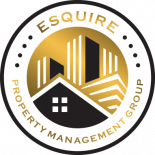Typical Commercial Property Management Fees and Services Explained Here
Owning commercial property can be an excellent investment, providing steady income and appreciation over time, but it is not for the faint of heart. Managing commercial properties involves various responsibilities, from handling tenant issues to maintaining the building, solving challenges, being creative, marketing, etc. Many commercial property owners choose to hire a professional property management company to handle these tasks. While hiring a property manager offers peace of mind, it also comes with costs and expectations. We help explain the types of fees typically involved in commercial property management and outline the services professional commercial property managers provide.

Want to Understand Commercial Property Management Fees?
Commercial property management fees can vary significantly based on the type of property, location, and the range of services provided. Below is a simple breakdown of the most common fees:
- What are typical Monthly Management Fees The monthly management fee is a standard charge for overseeing the day-to-day operations of the property. This fee typically ranges from 2% to 10% of the monthly gross rental income but can be higher or lower depending on the complexity and location of the property. The fee generally covers tasks such as rent collection, coordinating maintenance, responding to tenant inquiries, and managing lease renewals. Fees can also include a percentage of the common area charges, built into the tenant’s leases so the owner will be reimbursed for all management fees.
- What are typical Leasing Fees Leasing fees cover the costs associated with finding and placing new tenants. This fee can be a flat rate or a percentage of the first year’s rent, often ranging from 50% to 100% of one month’s rent, or sometimes 5-6% of the total cost of the lease. Some property management companies also charge a renewal fee if they negotiate lease extensions with existing tenants. Leasing services may include advertising the property, conducting tenant background checks, and handling lease agreements.
- Are there typical upcharges for Maintenance and Repairs? Some property management companies add a mark-up on maintenance and repair costs, typically around 5% to 20% of the total expense. This fee covers the time spent coordinating repairs, scheduling vendors, and overseeing the work. In some cases, property owners may have the option to use their own vendors to avoid this mark-up. However, managers often have access to a trusted network of contractors who can provide quality work at competitive prices. Other managers choose not to charge the owners unless the maintenance project is significant and requires laborious management.
- Is there a typical Vacancy Fee charged by Commercial Property Managers? When a property has a vacant unit, some property management companies charge a vacancy fee. This can be a monthly flat flat, or a percentage of the market rent for unoccupied space. The fee compensates the property manager for continuing to maintain and advertise the space while it’s empty. This charge is less common but can be useful if a property has frequent turnover and needs ongoing upkeep and marketing.
- Is there a typical Eviction Fee charged by Commercial Property Managers? Evicting a tenant can be a time-consuming and challenging process. Many property management companies charge an eviction fee to cover their efforts in navigating this process. This fee may include the costs of filing court documents, appearing in court, and hiring a legal representative. Depending on the complexity of the eviction, these fees can range from a few hundred to several thousand dollars. Many property managers do not charge eviction fees, but merely pass along the costs of the process services, and eviction attorneys directly to the owners.
- What are typical Administrative Fees charged by Commercial Property Managers? Some property managers charge additional administrative fees to cover costs like office supplies, postage, or document storage. These fees are generally nominal, ranging from $50 to $200 annually. However, it’s essential to review your property management agreement to understand what these fees include. Many property managers do not charge administrative fees as they typically build these costs into their overall fee structure.

What are the Key Services Provided by Commercial Property Managers?
Professional commercial property managers offer a wide range of services designed to keep the property running smoothly and profitably. Here are the primary services they provide:
- Tenant Management One of the main responsibilities of a property manager is handling tenant relations, complaints, and day-to-day questions. This includes addressing tenant complaints, conducting lease negotiations, and ensuring rent payments are collected on time. Property managers also conduct tenant screenings to secure reliable, long-term tenants, which can save property owners the cost and hassle of frequent turnover.
- Maintenance and Repairs Property managers are responsible for maintaining the property, including routine maintenance, emergency repairs, and preventive care. They coordinate with contractors, monitor repair schedules, and ensure the property remains safe and functional for tenants. This can range from overseeing basic repairs to handling major upgrades, such as HVAC replacements or parking lot resurfacing – and common area projects, cleaning, maintenance.
- Financial Management Property managers handle financial tasks like rent collection, budgeting, and expense tracking. They may also provide owners with monthly or quarterly financial reports detailing income, expenses, and profits. These financial services can include preparing annual budgets, managing operating expenses, and ensuring timely payment of property taxes and other obligations.
- Legal Compliance Commercial properties are subject to numerous regulations, from health and safety codes to zoning laws. Property managers help ensure that the property complies with these laws to avoid costly fines or penalties. They may handle lease agreements, ensure the property is up to code, and navigate legal issues involving tenants or regulatory bodies.
- Marketing and Leasing Property managers work to keep occupancy rates high by marketing vacant spaces, conducting tours, and negotiating lease terms. They may advertise the property online, in print, or through commercial real estate networks to attract potential tenants. Once a lease is signed, they ensure that the terms are favorable and that tenants understand their responsibilities.

How to Choose the Right Commercial Property Manager?
When choosing a commercial property manager, it’s essential to consider the specific services you need and the fees associated with each. Reviewing your property management agreement in detail will help ensure you understand all costs involved, and it’s often beneficial to negotiate terms to match your unique needs. Some property management companies have full-time real estate attorneys to help owners with legal issues and other concerns.
Commercial property management fees may seem substantial, but the value they bring in terms of professional oversight, tenant retention, and regulatory compliance often outweighs the costs. By entrusting property management to experienced professionals, owners can enjoy a hands-off investment while still maximizing their property’s potential. Finally, property management fees are 100% tax deductible, so an owner gets the benefit of management, and a tax deduction.

David currently is the broker/owner of several real estate related businesses which manage and maintain 300+ client properties on the San Francisco Peninsula.
Trust, transparency, and performance guarantees are the foundation of these businesses. David challenges anyone to find a PM professional that offers services similar - extensive education, customer service, and performance guarantees.
David also provides consulting for his clients on property development feasibility, construction, and complex real estate transactions.
David has authored a published law review article, three real estate books, and over 150+ real estate blog articles.
- “Wildfires, Insurance & Mortgages: Will Your Home Survive the Financial Aftermath?” - March 3, 2025
- What’s Driving California’s Commercial Real Estate Shakeup? - February 27, 2025
- Critical Issues in Triple Net Leases Investors Should Know - February 14, 2025

